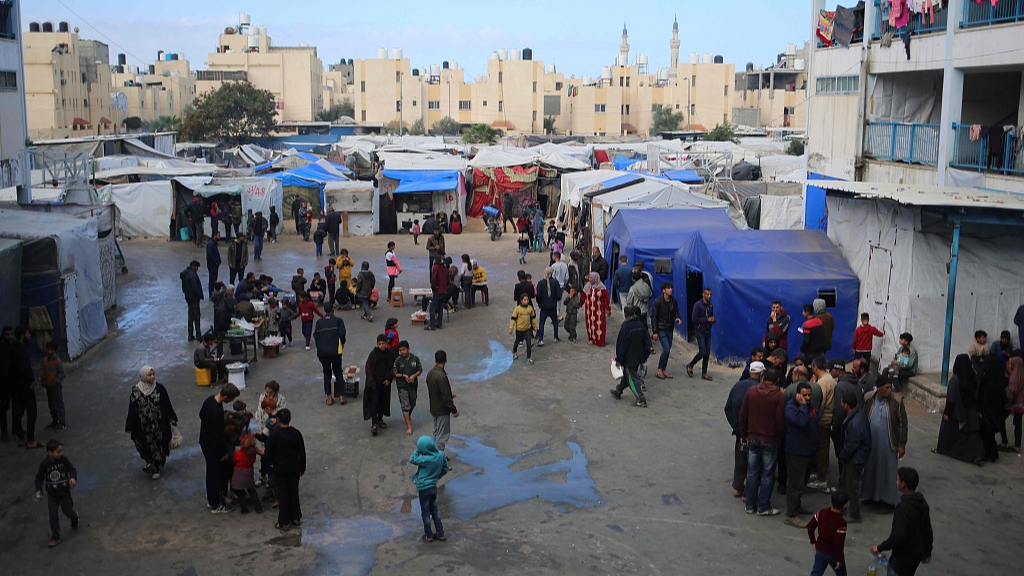TOKYO: As Australia, Canada and Sweden were among a few countries that said they were resuming aid to the UN’s crisis-hit Palestinian refugee agency (UNRWA), Japan announced on Thursday its plan to resume funding to the United Nations aid agency for Palestinian refugees after suspending assistance.
“Japan and the UNRWA confirmed that they will advance final coordination about necessary efforts to resume Japan’s contribution,” the country’s Foreign Ministry said in a statement.
Japanese media reports said the resumption of funding, suspended in January, was expected to come in the first half of April.
In a warning last month, UNRWA chief Philippe Lazzarini said the funding crunch could prevent the organization from operating beyond March.
After several countries recently resumed or increased funding, the UNWRA has sufficient funds to keep its operations running until the end of May, Lazzarini said on Tuesday. “The situation today is less dramatic,” he added.
Israel’s allegations
UNRWA, which provides assistance and essential services to Palestinian refugees, was undergoing a crisis following Israeli allegations in January that 12 of its 13,000 employees in Gaza were involved in the Hamas attack on Israel on October 7.
Israeli authorities subsequently claimed that more than 450 UNRWA employees are “military operatives in terror groups in Gaza.”
The Israeli accusations led 16 countries, including the United States, to pause approximately $440 million in UNRWA funding, which represents nearly half of UNRWA’s yearly funding, throwing its operations into crisis.
The UN, which is probing the claims, has said Israel has not provided it with evidence to support the allegations and has initiated an independent internal investigation.
According to UNRWA, some of the employees released from Israeli detention reported that Israeli authorities pressured them into falsely stating that the agency had Hamas connections and that staff took part in the attacks on October 7.
In a UNRWA report published in February, unidentified Palestinians, including several working for UNRWA, complained of mistreatment while detained by Israeli authorities.
“Agency staff members have been subject to threats and coercion by the Israeli authorities while in detention, and pressured to make false statements against the Agency, including that the Agency has affiliations with Hamas and that UNRWA staff members took part in the 7 October 2023 atrocities,” the report says.

The besieged coastal enclave
Israel has undertaken a large-scale offensive in the Gaza Strip following Hamas’s attacks in southern Israel on October 7.
As a result, the besieged coastal enclave, home to about 2.35 million people, is experiencing a humanitarian disaster amid international warnings of famine.
The United Nations Office for the Coordination of Humanitarian Affairs (OCHA) said on Thursday that more than 1.1 million people in the Gaza Strip are facing “an extreme level of food insecurity” as Israel prevents aid from entering the enclave.
The statement, posted on social media platform X, emphasized the need to distribute sufficient food aid via land routes to save lives, especially in the northern areas of Gaza.
However, “access impediments persist, and time is running out,” the OCHA said.
Meanwhile, medical sources announced on Thursday the death of a child in the northern Gazan city of Beit Lahia due to famine and a lack of available treatment, raising the number of deaths due to malnutrition in the enclave to 30.
The International Court of Justice (ICJ) in The Hague on Thursday ordered Israel to do whatever is necessary to ensure that basic aid reaches the Palestinian population in the Gaza Strip.
The ruling is an addition to a January 26 verdict in which the ICJ ordered Israel to take all possible measures to prevent acts of genocide against Palestinians in the Gaza Strip, to halt incitement against Palestinians as a group, to preserve evidence and to take immediate measures to ensure humanitarian aid.
In its legally binding order, the court told Israel to take measures “without delay” to ensure “the unhindered provision” of basic services and humanitarian assistance, including food, water, fuel and medical supplies.























